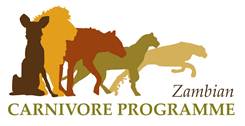Course Outline
We will cover some or all of the following major subjects, depending on time:
- Human population growth - the 'arms race' between growth rates and carrying capacity
- Biodiversity - methods of measurement, broad patterns, and processes that maintain diversity
- Extinction - recent and historical rates and causes of extinction and population decline.
- Global warming and its consequences for ecology and conservation. This will focus primarily on understanding the carbon cycle and atmospheric processes, how anthropogenic influences are altering these, and the consequences for ecological processes (mainly the distribution and abundance of species). We'll address ecological economics to some extent
- Speciation and the ESA - the process generating diversity, and tricky interactions between phylogeny, taxonomy and law.
- Genetic issues in conservation - inbreeding, hybridization, and the use of molecular genetic tools in conservation.
- Extinction risk - demography, population dynamics, stochasticity and PVA
- Predation and Harvesting- population dynamics with interspecific interactions, discounting, externalities, publicly held goods
- Community-level approaches - Diversity and Stability
- Landscape approaches- hotspots, gap analysis
These fall into five main sections: general issues, human impacts, genetic and evolutionary approaches, single-species approaches, and multi-species or location-based approaches.
- Module 1
- Conservation Biology & Human population growth - a race between N & K.
- Utilitarian and Transcedentalist philosophies of conservation
- Module 2
- Biodiversity: how many species, what patterns? past and present extinction rates.
- Module 3
- Designing and interpreting studies
- Module 4
- Anthropogenic climate change
- Module 5
- Population Viability Analysis
- Module 6
- Genetic Issues in Conservation

